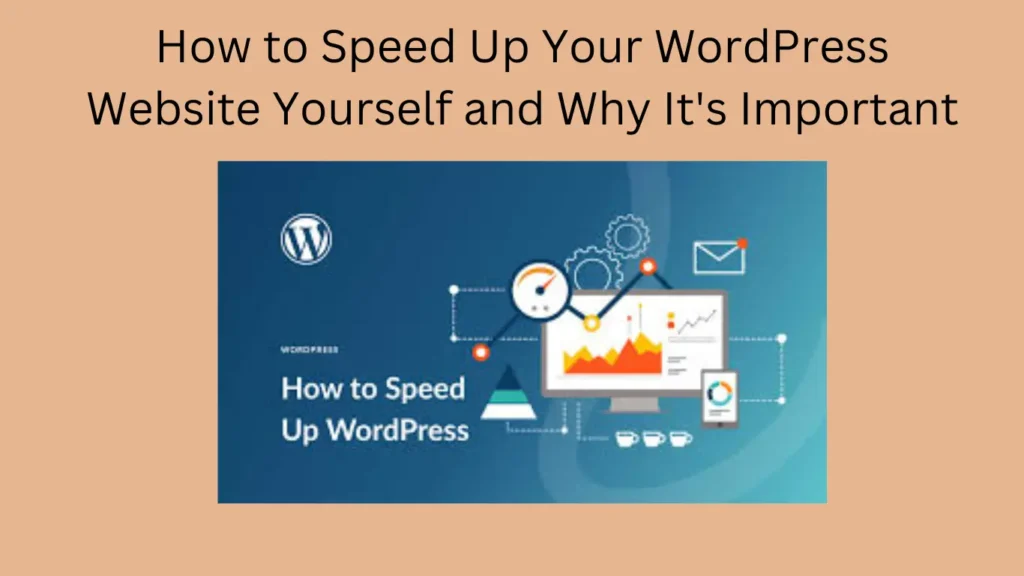WordPress is a powerful platform for building websites, but a slow website can lead to poor user experience, lower search engine rankings, and decreased conversions. In this guide, we’ll show you how to speed up your WordPress website yourself and explain why it’s crucial, focusing on creating helpful, reliable, people-first content.
Why Website Speed Matters?
Google considers website speed as a ranking factor, meaning faster websites are more likely to rank higher in search results. Additionally, faster websites tend to have higher conversion rates, as users are more inclined to complete a purchase or sign up for a service on a fast website.
To speed up your WordPress website, follow these steps:
- Choose a Lightweight Theme: Opt for a lightweight and well-coded theme for faster loading times.
- Optimize Images: Compress images before uploading to reduce file size without compromising quality, using plugins like WP Smush or EWWW Image Optimizer.
- Use a Caching Plugin: Install a caching plugin like WP Super Cache or W3 Total Cache to store static versions of your site, reducing server load and load times.
- Minimize CSS and JavaScript: Minify CSS and JavaScript files to reduce their size, utilizing plugins like Autoptimize for automatic optimization.
- Enable GZIP Compression: Reduce the size of your website files with GZIP compression, available through most hosting providers or plugins like GZip Ninja Speed Compression.
- Use a Content Delivery Network (CDN): Store cached copies of your website on servers worldwide to reduce the distance between your site and visitors, improving load times.
- Reduce HTTP Requests: Minimize the number of files your website needs to load by combining CSS and JavaScript files and reducing the use of external scripts.
In conclusion, optimizing your WordPress website’s speed is crucial for providing a better user experience, improving SEO rankings, and increasing conversion rates. Following these steps can help you achieve these goals and ensure that visitors have a fast and enjoyable browsing experience.
For further Inquires Contact Us
FAQs
Why is website speed important for WordPress websites?
Website speed impacts user experience, SEO rankings, and conversion rates. A fast website improves user satisfaction and encourages visitors to stay longer.
How can I check my WordPress website’s speed?
Use tools such as Google PageSpeed Insights or GTmetrix to evaluate your website’s speed performance.
What are some common reasons for a slow WordPress website?
Common reasons include unoptimized images, bulky themes or plugins, lack of caching, and excessive use of external scripts. Identifying and addressing these issues can help speed up your website.
How can I optimize images on my WordPress website?
Use image compression plugins like WP Smush or TinyPNG to reduce image file sizes without compromising quality. Additionally, ensure images are in the correct format (e.g., JPEG for photographs, PNG for graphics).
Is it necessary to use a caching plugin for my WordPress website?
Yes, a caching plugin can significantly improve your website’s speed by storing static versions of your site and reducing server load. Popular caching plugins include WP Super Cache, W3 Total Cache, and WP Rocket.

